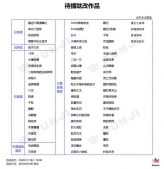1.response.text
- 类型:str
- 解码类型: 根据HTTP 头部对响应的编码作出有根据的推测,推测的文本编码
- 如何修改编码方式:response.encoding=”gbk”
2. response.content
- 类型:bytes
- 解码类型: 没有指定
- 如何修改编码方式:response.content.deocde(“utf-8”)
3.获取网页源码的通用方式:
|
1
2
|
response.content.decode()response.content.decode(“GBK”) |
解码方式可以根据响应头中找到Content-Type:text/html;charset=utf-8或者网页源码中content="text/html;charset=utf-8''来决定.
|
1
|
response.text |
以上三种方法从前往后尝试,能够100%的解决所有网页解码的问题
所以:更推荐使用**response.content.deocde()**的方式获取响应的html页面
补充:python3中requests 常用response
看代码吧~
|
1
2
3
4
5
6
7
8
9
10
11
12
13
14
15
16
|
import requestsres = requests.get("http://127.0.0.1:9092")print(res.status_code) # 200print(res.url) # http://127.0.0.1:9092/print(res.headers) # {'Content-Type': 'application/json; charset=utf-8', 'Content-Length': '10', 'Date': 'Sat, 22 Dec 2018 13:36:16 GMT', 'Connection': 'keep-alive'}print(res.cookies) # <RequestsCookieJar[<Cookie cid=hello world for 127.0.0.1/>]>print(res.text) # 8248154254print(res.content) # b'8248154254' 写图片print(res.cookies['cid']) # hello world# 爬取 图片r1 = requests.get('https://timgsa.baidu.com/timg?image&quality=80&size=b9999_10000&sec=1545496551516&di=8ed19596bc72aa87299ed7f234830128&imgtype=0&src=http%3A%2F%2Fimg5.duitang.com%2Fuploads%2Fitem%2F201107%2F31%2F20110731155631_htMcs.jpg')b = r1.contentwith open('hao.jpg','wb') as f: f.write(b) |
以上为个人经验,希望能给大家一个参考,也希望大家多多支持服务器之家。
原文链接:https://blog.csdn.net/lbj1260200629/article/details/82997524





